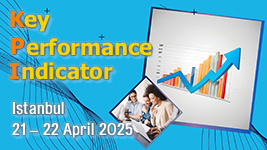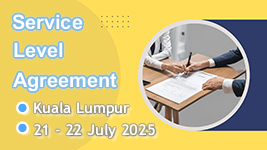FM53
- Other
- courses : Doha, Facilities Management, Mar 2013
Major Emergency Response Management
Planning, Leadership & Communication
Code : FM53
Date : 24 – 25 March 2013
Venue : Doha
![]()
The Course
Case studies from around the world prove that with any Major Emergency, regardless of cause, there has to be proven, open and transparent corporate Emergency Response systems in place. Without such systems an effective grasp of command and control will be impossible. How this is reflected to your stakeholders will be critical to your survival. So the importance of leaders getting the all important ‘Corporate Communications’ right the first time should never be underestimated.
If your company is faced with a major interruption, it still has a service to maintain, it has a product to produce, it has customers, suppliers, investors and employees to be kept informed and updated, it has it’s good reputation and image to protect, therefore an effective and well-rehearsed Emergency Response plan has to be in place and validated, ‘before the day’. Moreover, with proven leadership skills and following the courses’ guidelines there is a possibility that you can turn the Major Emergency to your advantage and even enhance your corporate image on the other side of the event.
Remember, being unprepared is simply unacceptable, so if your Department or Company were engulfed by a Major Emergency, from whatever cause, would it be caught unprepared? Are you and your team trained and ready for the next event?
The Goals
- Learn the elements which are commonly encountered in a Major Emergency – What can go right and what can go wrong?
- Become familiar with the discharge of corporate responsibilities and the execution of decision making between all your stakeholders.
- Understand the need for co-ordinated planning, training, exercising and team development
- Develop an in-depth knowledge of communicating in a crisis and the appropriate roles and responsibilities
The Delegates
This up-dated seminar is designed for those whose actions and decisions have critical implications for their organisation and those who wish to further develop their Emergency Response, Communication and Leadership capabilities. In most organisations this emergency response and strategy process extends to all managers, shift superintendents and team leaders.
The Process
This dynamic event incorporates the use of self assessment and awareness tools along with activities to enhance your leadership capability when planning for and responding to a Major Emergency. Participants learn strategies for continuous development through assessment, outcomes, group discussions, self reflection, small group activities and role play. Action learning presents leadership, crisis communication skills and team problem solving challenges, allowing participants to practice emergency response leadership behaviours in a supporting environment with feedback.
The Benefits
- Enhance your reputation by delivering accurate information, at the right time and with the right message.
- Learn how to increase ownership and involvement of all stakeholders.
- Understand the pro-active techniques required to equate the necessary levels of competency enabling the preparation and timely implementation of the Plans.
The Results
- Discover how to create an efficient and an effective corporate response to all Emergencies.
- Response to any major emergency demands rapid decision making, so our detailed and comprehensive plans and checklists will make that decision-making process easier especially in the first ‘Golden Hour’.
- Moreover, following these guidelines there is a possibility that the organisation can turn the challenge to its advantage and thereby enhance corporate image.
- Implement co-ordinated Command and Control techniques.
The Programme Content
Day 1
Developing Major Emergency Response Plans and Techniques for the 24/7 world
- Course introduction – aims and objectives of the event
- Who and what should be involved in an Emergency Response programme?
- Consider the number of stakeholders in a Major Emergency
- What preparations are necessary in the planning/pre-emergency stage?
- What can cause an Emergency and what is the potential life cycle?
- Consider the full range of potential emergencies, classifications and types of plan
- Workshop – Prepare an Emergency Response Plan
- Case Studies. Those who got it right and those who got it wrong!
- Lesson Learnt – Review
Implementing Co-ordinated Command and Control Techniques
- The Auditing Process – Self-Evaluation questions and Syndicate questions.
- Managing the Emergency Response. Command & Control issues:
- Strategic; Tactical & Operational;
- Decision making in Critical situations;
- Emergency Response and senior Crisis Management Team;
- Emergency Communications/Operations Centre;
- On-scene management, what are the leadership and communication issues?
- Business Continuity Management (BCM)
- Identifying the essential core functions?
- Following a major disruption (including terrorism) what are your recovery priorities?
- Case Study – Union Carbide (Dow Chemical’s). Bhopal, India
- Lesson Learnt – Review
Minimising Your Company’s Risk, Protecting and Enhancing Your Company’s Reputation When a Major Emergency hits.
- What is Reputational Risk and why is communication about risk important?
- What types of risk does your company and any nearby face?
- Why is good communication important in dealing with risk?
- What factors are likely to increase public concern about risks?
- Understanding how the media reacts to risk and why is this important?
- The Toolkit – best practice examples in protecting your Reputation.
- Media Management Guidelines and 20 point communications checklist:
- Organising and managing press conferences
- How to conduct successful TV and radio interviews
- How good communication can help prevent a Major Emergency becoming a Crisis
- Workshop – Rapidly provide a media statement for the CEO in response to a given scenario
- Managing the Human Aspects of Emergency Response.
- Lesson Learnt – Review
Day 2
Crisis Communications are judged not by content alone, but also by source; who is telling me this, and should I believe them?
- The myths and realities of Crisis Communication Strategies:
- What do we know about the event, what do we want people to know, and how do we communicate it effectively?
- How do we make our communications meaningfully two-way, and how do we keep our audiences active rather than passive?
- Alerting and Warning Stakeholders
- Case Study – Pemex, Mexico City
- Workshop – Handling a Major Emergency – with Role Play
- Lesson Learnt – Review
Plans that have not been validated are just paper
- Case Studies – When it all goes wrong:
- Tank Farm explosions and fires, UK 2005, Puerto Rico 2009, India 2009
- BP Texas City 2005, BP Alaska 2006, BP Gulf of Mexico Spill 2010.
- Workshop – review the BP media statements to the 2005 & 2010 incidents
- Exercise Design – developing training exercises for the Emergency Response Team
- Exercise Design – Choose the right type of exercise
- Starting the exercise – Information during the exercise – De-brief – Final Report – Closing the Loop –
- Implementing the recommendations
- The 17 benefits of exercising you plans
- Develop an action plan of learning from incidents, drills and exercises
- Discuss personal action plans
- Open Forum – time permitting
Tags: Doha, Facilities Management, Mar 2013





